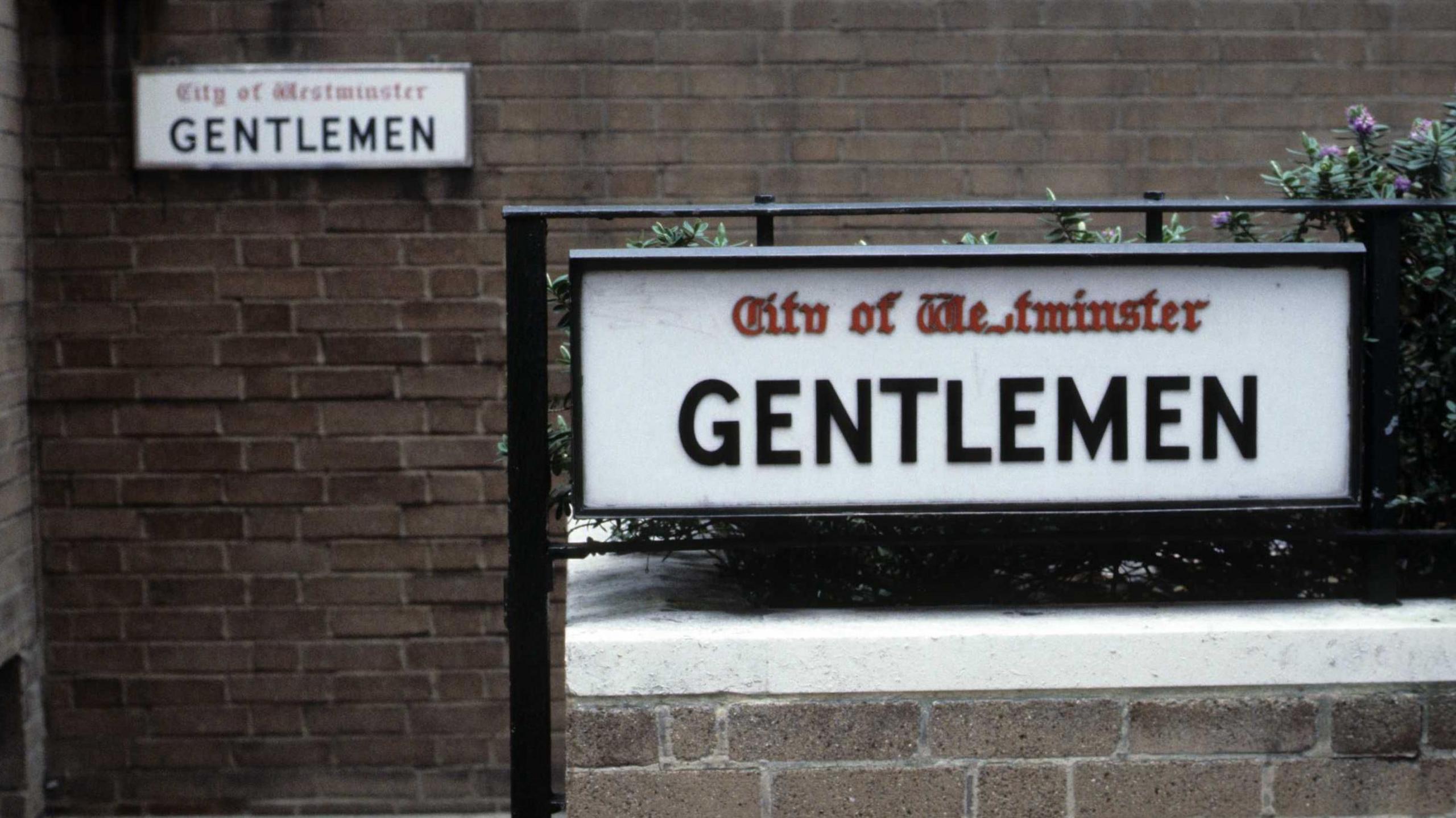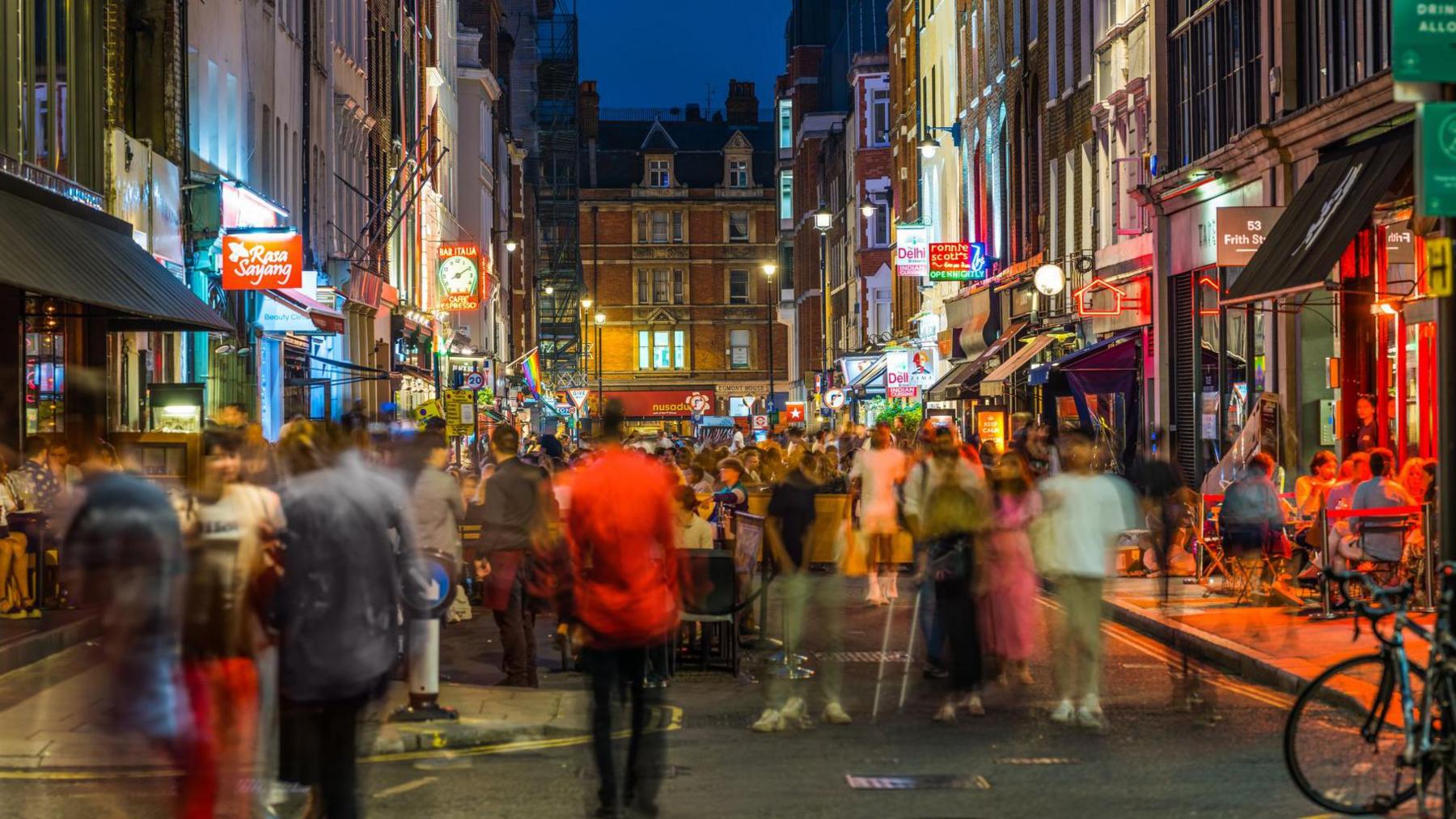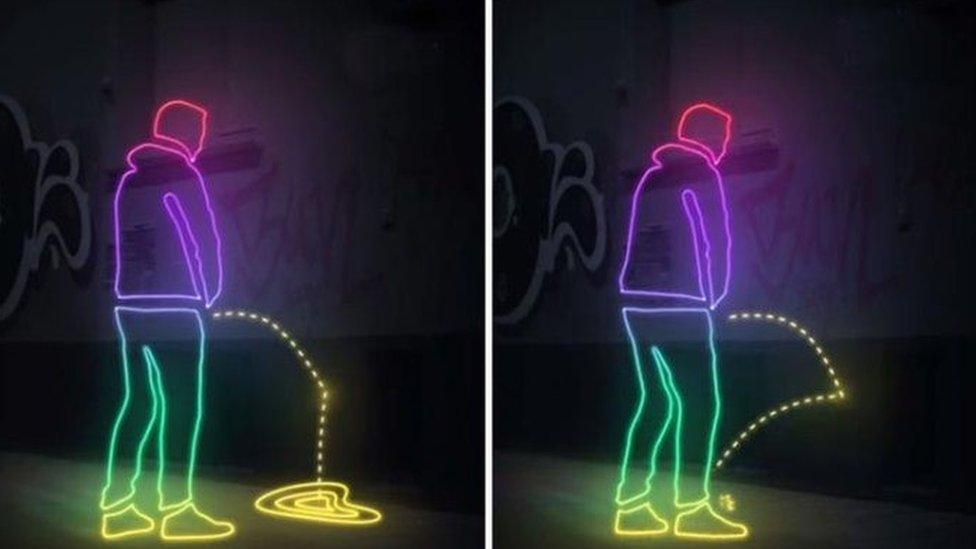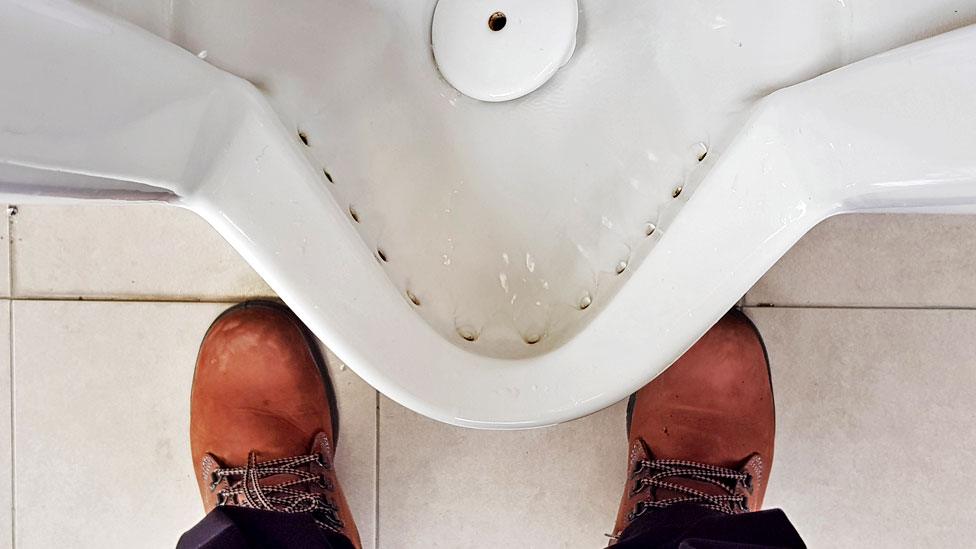Soho visitors 'caught short by lack of toilets'

The report claims there are only three permanent public toilets in Soho
- Published
A neighbourhood forum of Soho residents and businesses says the area needs more public toilets, and claims the financial returns would significantly outweigh the cost.
The Soho Neighbourhood Forum has produced a report that said Soho had seen a reduction of 70% in the number of public toilet cubicles and urinals in the past 15 years.
The "Caught Short" report stated that 77% of businesses and 64% of visitors had personally witnessed people urinating in Soho’s streets.
Westminster City Council said it was investing £12.7m on an “extensive refurbishment of our eight West End public toilets”.
'Completely unacceptable'
The council said it was also spending more than £1.8m on upgrading and replacing urinals and automatic public conveniences.
Councillor Paul Dimoldenberg, cabinet member for city management and air quality, said: “We know that street urination continues to be a problem in busy areas of town like Soho.
"This is completely unacceptable, and residents and businesses should not have to put up with it.”
The neighbourhood forum’s report found that 27% of visitors would avoid going to the West End because of the lack of public toilets, and 80% of the 151 Soho businesses that responded said this was damaging the area’s reputation.
It estimated that it costs Soho businesses £300,000 a year in cleaning the mess left, but if the public toilet issue was resolved it could be worth an additional £4.9m a year in revenue for the area.
Lucy Haine, chair of The Soho Neighbourhood Forum, said the shortage of public toilets meant “effectively telling millions of people that they shouldn’t visit for fear of not being able to find a loo in time”.
She said: “There are three key elements behind our belief that Soho really needs to up its game in terms of public toilet accessibility – discrimination, reputation, and lost income.”

Soho has seen a reduction of 70% in the number of public toilet cubicles
The forum said those most impacted by a lack of public toilets were the elderly, women and the millions of people classified as being "urgent WC users", who have to plan their journeys based on access and availability of public facilities. It means businesses lose out on their custom if they decide to go elsewhere.
The report claims there were currently only three permanent public toilet facilities available for use within the area.
They included the toilets on the corner of Carnaby and Great Marlborough Streets, which were only open during the day, and were underground and not accessible to all.
There was one automatic public convenience on Broadwick Street and one "butterfly" urinal on the north side of Soho Square Gardens, and they were also only open to 6pm each day.
The report found the problem most acute in the evenings when there were an estimated 73,000 visitors in the area between 6-9pm.
It said to meet the minimum requirements, Soho would need at least 19 urinals and 58 cubicles. With the current permanent urinals and 10 chemical toilets, there was still a shortfall of 47 cubicles.
'Deal with the problem'
Soho’s current permanent provision is poor compared to other cities. Paris has of 18 public toilets per 100,000 population compared with three for Soho, based on the area's peak population of 100,000.
One unnamed London Assembly member quoted in the report said: "The lack of toilet provision is an indictment on society. No one is going to urinate or defecate in the street unless they have no alternative.”
Councillor Dimoldenberg said making sure Westminster’s streets were clean and safe was the council’s top priority and he would “look carefully” at the report, which he welcomed.
He said: “Our city inspectors and street cleaning teams run a 24/7 service to deal with problems like street urination and defecation as quickly as possible.
“We also provide a network of temporary toilets in the West End at weekends and during major events to address the increase in demand for toilets during busier times.”
Listen to the best of BBC Radio London on Sounds and follow BBC London on Facebook, external, X, external and Instagram, external. Send your story ideas to hello.bbclondon@bbc.co.uk, external
Related topics
- Published15 December 2022

- Published3 November 2024

- Published17 January 2022
